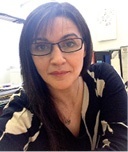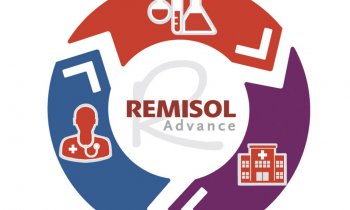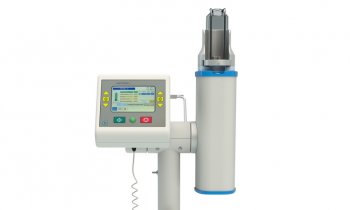eSMART: mobile phones help patients through chemotherapy treatment
Coping with the side effects of chemotherapy treatment is challenging for people with cancer. When fatigued or nauseous, it is not easy to assess if these conditions are acceptable treatment side effects or require medical assistance.

A University of Surrey-led programme called eSMART (Electronic Symptom Management using ASyMS Remote Technology), used in the United Kingdom for the past decade, is expanding to five other countries through a €6 million European Commission grant.
eSMART uses mobile phone technology to remotely monitor patients. Patients use a mobile phone to report any side effects they are experiencing and send this to a dedicated computer. The computer automatically monitors the patients’ responses and sends alerts to clinicians based in their hospital if any of the symptoms reported need management.
Patients also receive information on their mobile phone on how they themselves can manage their symptoms. They can also view graphs of their symptom reports. Symptoms that can trigger alerts for medical intervention include pain, signs of infection, nausea and vomiting, diarrhoea, muscositis, hand-foot syndrome, and extreme fatigue.
The five-year long randomised clinical trial will be conducted across 17 sites in Europe, in Austria, Greece, Holland, Ireland, Norway and the UK. 1,108 patients aged 18+ who are prescribed at least four cycles of first-line chemotherapy to treat breast, colorectal cancer or haematological cancers, will be invited to participate. Half will use the eSMART system and the others will receive standard care. Professor Nora Kearney, head of the University of Surrey School of Health and Social Care, is principal investigator.
The programme’s primary objectives are to reduce the symptom burden and improve the quality of life of people with breast, colorectal, and haematological cancer receiving chemotherapy. Data will also be evaluated regarding changes in clinical practice as a result of implementing the ASyMS system and cost benefit. Roma Maguire PhD, professor of cancer care at the University of Surrey, told European Hospital that eSMART will demonstrate how smartphone technology can improve the outcomes of people with cancer while simultaneously addressing the increasing demands on acute services across Europe. ‘We hope that this trial will reduce social and economic barriers in cancer care. Not everyone has equivalent access to the support they should have from the doctors and nurses who treat them,’ she said.
There are 11 partners supporting the pioneering work of the researchers at the University of Surrey, including the European Cancer Patient Coalition, NHS 24 Scotland and the University of Dundee, Kings College London, University College Dublin in Ireland, the University of Athens, Amsterdam Medical Centre, Oslo Universitetssykehus HF in Norway, Vienna’s Medizinsche Universitaet, and the University of California San Francisco in the United States. Docobo, a UK remote monitoring telehealth services provider, is the sole commercial partner.
‘Patients absolutely love the system. They are very concerned when they get chemotherapy because it’s a frightening experience. After their chemotherapy they are sent home to manage their side effects. eSMART reassures them that someone is looking after them all the time,’ Professor Kearney explained.
The technology has the potential to provide similar support for patients with cardiac disease, diabetes, chronic lung conditions, and those receiving palliative care. Professor Maguire told European Hospital that the Surrey research team is working on developing software programmes for these conditions. ‘With the proliferation of smartphones in use throughout Europe, we are hopeful that this clinical trial will validate and generate funding for the expansion of remote healthcare monitoring services. The potential to help patients is so great with this type of technology.’
Profile:
Roma Maguire is a Professor of Cancer Care within the School of Health and Social Care at the University of Surrey. She also holds an Honorary Nurse Consultant post within NHS Lanarkshire, where she works on lung cancer follow-up.
The professor had worked in various clinical settings including general surgery and intensive care before consolidating her nursing career within the areas of nursing research and oncology. She also has significant experience in the conduct and management of multi-site clinical research trials and mixed methods research, and has co-authored more than 30 articles and abstracts published in peer-reviewed journals.
18.06.2014











